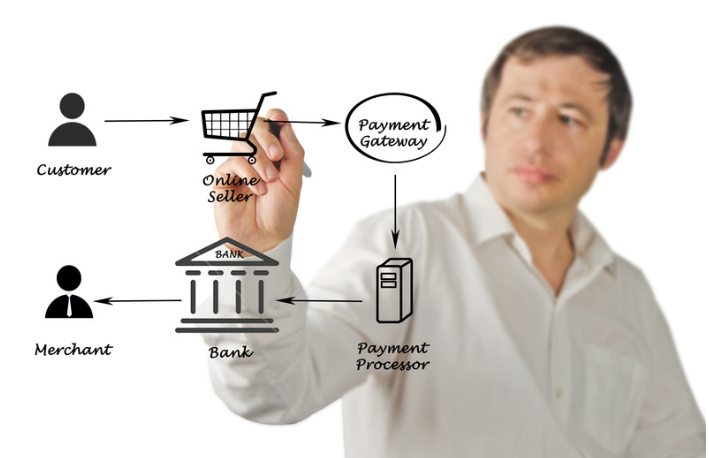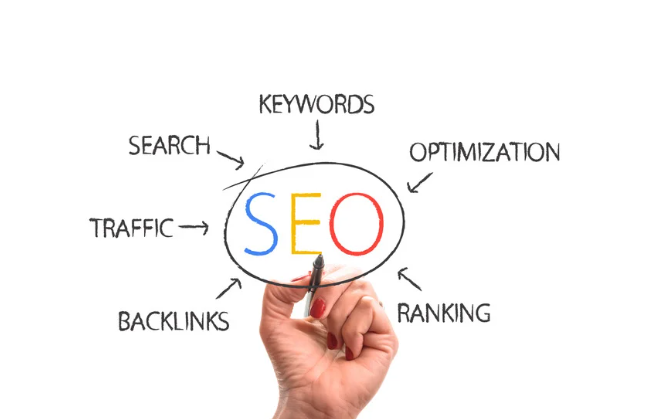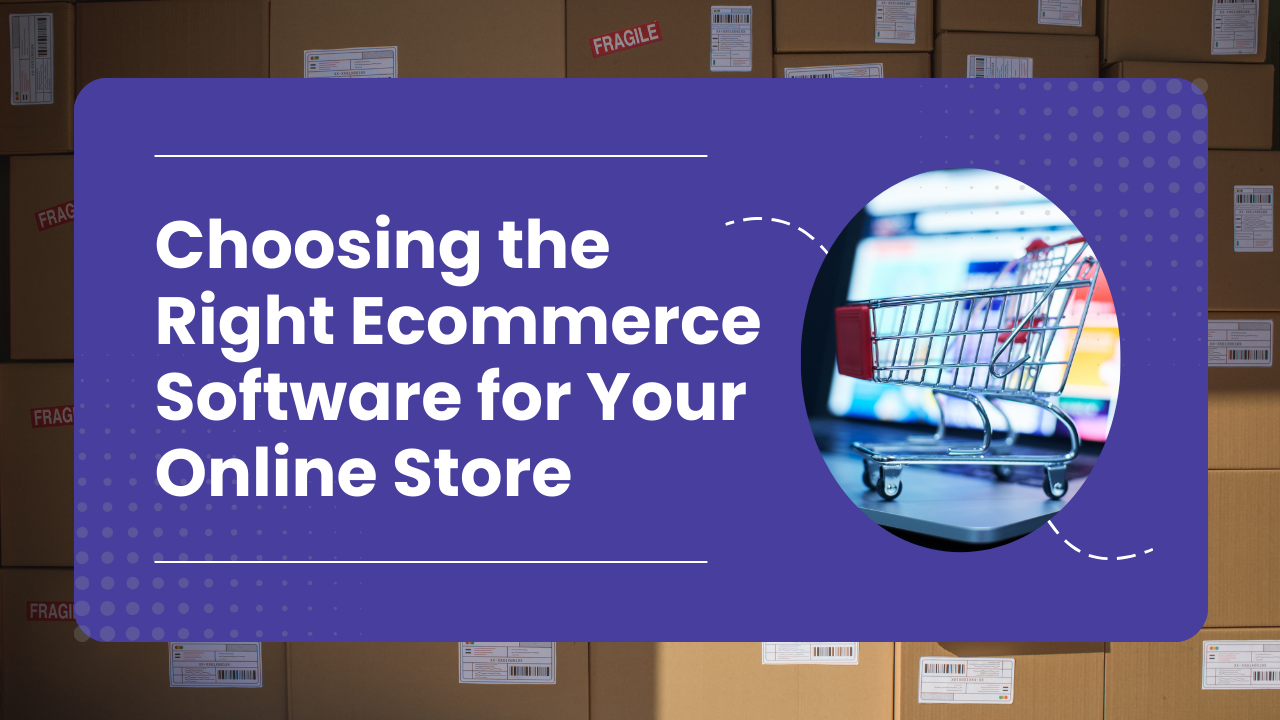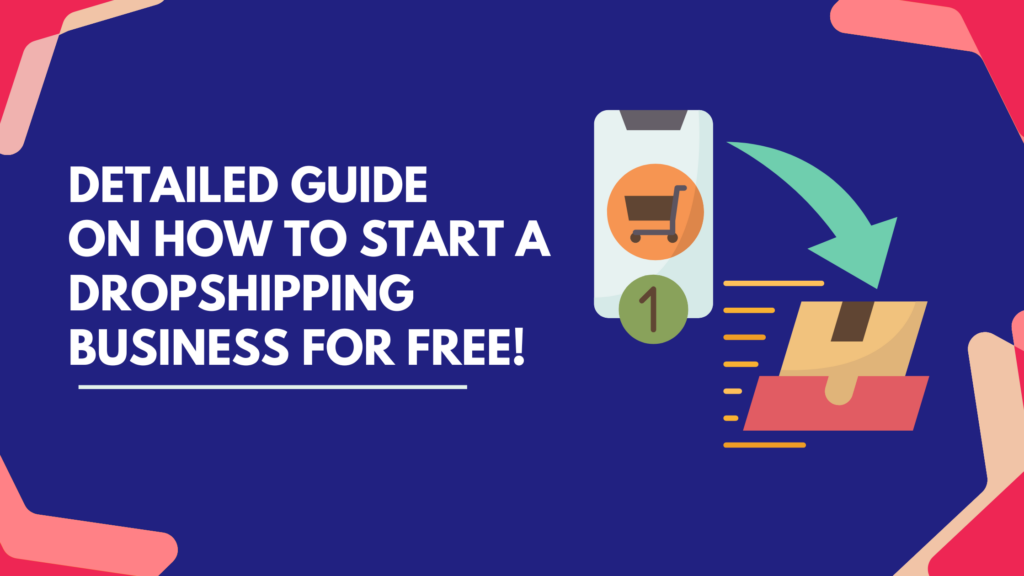

Choosing the right ecommerce software is crucial for the success of your online store. With a plethora of options available, finding the perfect fit can be challenging. This guide will walk you through the essential factors to consider, ensuring you make an informed decision that aligns with your business needs.
1. Understand Your Business Needs


Before diving into the various ecommerce software options, it’s essential to clearly define your business needs and goals. Consider the following:
Size of Your Business: Are you a small startup, a mid-sized business, or a large enterprise?
Product Range: How many products will you be selling? Do you need support for physical, digital, or both types of products?
Target Audience: Who are your customers? Are they local, national, or international?
2. eCommerce Software's Ease of Use


The usability of the ecommerce software is paramount. Look for a platform that is intuitive and easy to navigate. This ensures you can manage your store efficiently without needing extensive technical expertise. Features to consider include:
User-friendly Interface: A clean, easy-to-understand dashboard.
Customizability: The ability to tailor the store’s look and feel to match your brand.
Support and Resources: Access to tutorials, forums, and customer support.
3. Scalability


As your business grows, your ecommerce software should be able to scale with you. Consider the following scalability features:
Flexibility: Can the platform handle increased traffic and a larger product catalog?
Add-Ons and Integrations: Availability of extensions and integrations with other tools like CRM, ERP, and marketing software.
Multi-channel Support: Ability to sell across various platforms like social media, marketplaces, and brick-and-mortar stores.
4. Payment Processing


Efficient payment processing is critical for a seamless shopping experience. Evaluate the following:
Payment Gateways: Ensure the software supports multiple payment gateways, including popular options like PayPal, Stripe, and credit card processing.
Transaction Fees: Be aware of any transaction fees and how they impact your profit margins.
Security: Look for features like SSL certificates and PCI compliance to ensure secure transactions.
As of 2023, over 70% of online shoppers abandon their carts due to a complicated checkout process. A seamless payment processing system can significantly reduce cart abandonment rates.
5. SEO and Marketing Tools


To drive traffic to your online store, you need robust SEO and marketing tools. Key features to look for include:
SEO Capabilities: Options for optimizing product pages, meta tags, and URLs.
Marketing Tools: Built-in tools for email marketing, social media integration, and promotional campaigns.
Analytics: Access to detailed analytics to track visitor behavior, sales performance, and marketing effectiveness.
According to a study by BrightEdge, 68% of online experiences begin with a search engine, making SEO a critical component for ecommerce success.
6. Mobile Responsiveness


With a significant portion of online shopping happening on mobile devices, having a mobile-responsive store is non-negotiable. Ensure the ecommerce software provides:
Responsive Design: Templates and themes that automatically adjust to different screen sizes.
Mobile Optimization: Fast loading times and easy navigation on mobile devices.
In 2023, mobile commerce accounted for 72.9% of total ecommerce sales worldwide, highlighting the importance of mobile optimization.
7. Customer Support


Reliable customer support is essential for resolving any issues that arise. Consider the following aspects:
Availability: 24/7 support availability is ideal.
Support Channels: Access to various support channels, including live chat, phone, and email.
Community Support: An active user community and comprehensive knowledge base.
A survey by Microsoft found that 96% of consumers say customer service is an important factor in their choice of loyalty to a brand.
8. Pricing


Finally, consider the cost of the ecommerce software. Look for:
Transparent Pricing: Clear information about subscription fees, transaction fees, and additional costs.
Free Trial or Demo: Opportunity to test the software before committing.
Value for Money: Ensure the features offered justify the cost.
According to Statista, the global ecommerce software market is projected to reach $20.2 billion by 2027, indicating a growing investment in ecommerce solutions.
Conclusion


Choosing the right ecommerce software for your online store involves careful consideration of your business needs, scalability, payment processing, SEO and marketing tools, mobile responsiveness, customer support, and pricing. By evaluating these factors and considering relevant statistics, you can select a platform that not only meets your current requirements but also supports your business growth in the long run. Take your time, do your research, and don’t hesitate to seek expert advice if needed. With the right ecommerce software, you’ll be well on your way to running a successful online store.



